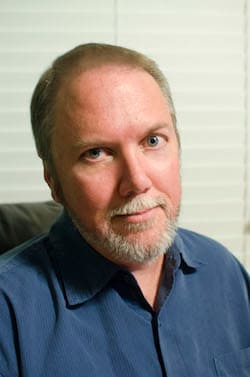 I spend a good deal of time each year attending state “MEA” shows — including Ohio, Texas, Florida, Tennessee, and others around the country — along with the NAfME conference. I’m always intrigued by the sessions presented and the creative topic names the presenters use to entice a music educator to attend their session.
I spend a good deal of time each year attending state “MEA” shows — including Ohio, Texas, Florida, Tennessee, and others around the country — along with the NAfME conference. I’m always intrigued by the sessions presented and the creative topic names the presenters use to entice a music educator to attend their session.
I don’t actually get to sit in on as many full sessions as I would like. I do, however, usually find time to take in a few that I find of interest on a personal level, or attend something that has been cleverly named to pique my curiosity. As the father of an autistic daughter – who is proudly a self-described vocalist — I take delight in seeing discussions scheduled such as the recent ones at OMEA this month entitled “Autism and the Arts,” or “Hearing from the People: A Panel Discussion Advocating Self-Contained Music Classes.”
Some strongly advocate for inclusion classes for special needs learners, and as a parent, there are some areas where I absolutely agree with inclusion, and there are others where I think a self-contained classroom is critical for both the special needs learners and the general learning population. From my experience, it seemed getting beyond a general music program with special needs students was as difficult for the special needs learners as it was for the teachers and other students. Inclusion in a large group music program is more often than not far too stimulating for many special needs learners, and the end result is that none of the students fully benefit. The flip side of this, unfortunately, can be that special needs students end up not just segregated from the general student population, but in some cases, not given exposure to music programs at all.
When my daughter was in middle school, she was in a self-contained day program class for special needs students. They had very little interaction with the general music programs. High school was no better. Additionally, none of the kids in her middle school class even knew the band/orchestra teacher’s name, let alone had any experience with any kind of musical instrument. I helped change that by having percussion instruments and training from The Rhythmic Arts Project (traponline.com) donated to the school through a grant from The David and Minnie Meyerson Foundation. This program uses percussion instruments of all types to teach an array of skills to special learners. From the simplest concepts, like learning what a quarter note is, what it looks like, and how to count it, to life skills that provide group participation skills and taking turns, this music program delivered. I witnessed a 13-year-old child named Matthew, who has Downs syndrome, learn his left from his right within a few weeks of the band director taking a personal interest in providing a new way to work with these kids and implementing TRAP. For all of Matthew’s life, teachers, parents, and others had tried to teach him left from his right. Within weeks of starting TRAP in his school, he finally learned it, and he learned it from banging on a drum.
Inclusion classes in music education can not deliver to these special learners what that self-contained class did. Inclusion of special needs learners in music programs really should be something that follows the individualized education plan (IEP) for that student, and if the student’s IEP team finds that inclusion in music is appropriate, then the student should be included and given the proper support to be successful. The key word here is “appropriate.” All students are entitled to a “free and appropriate education.” This is often called “FAPE.” When it’s appropriate, special needs learners should be able to sit side-by-side with the rest of the population in music, band, orchestra, and choral programs, as directed by the IEP team. Music educators should volunteer to sit in on the IEP meetings, whenever possible, to see to it that every child in their school, regardless of disability, has access to some kind of music education opportunity. Self-contained music classes are not a panacea for special needs students to learn music. However, neither is an automatic inclusion program.
Mike Lawson









